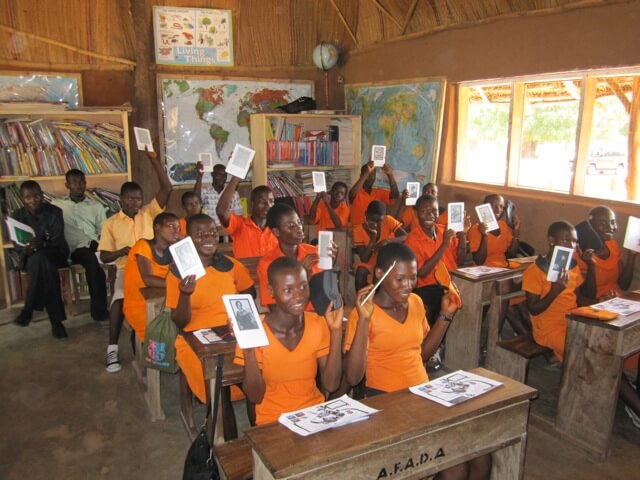
With the accessibility that digital reading has brought to the educational landscape, one crucial barrier to improved literacy seems to be physically bringing content to emerging readers in the developing world, and organizations like Worldreader are working to break down that barrier as well. Worldreader recently released the results of a year-long study in which the group brought 600 Kindles to public education students in Ghana.
The results showed a number of things. First, standardized test scores and literacy rates among the students improved, as teachers found themselves able to access quality textbooks and reading materials far more easily with digital reading. However, just like their counterparts in any classroom in any given country, the students were apt to be distracted by features like music and games.
As for the landscape of the international classroom itself, loss or theft was minimal at only two of the devices, but the damage to the devices was unexpectedly high. Forty percent of the units were damaged in some way during the year-long study, indicating the need for a possibly more rugged device for students in underserved areas. Regardless of the brand name, many e-readers are not built with the average elementary school students in mind and the future success of programs like Worldreader may depend on a more durable e-reader.
According to the published results, some of the more positive aspects of the study aside from the improvement in standardized test scores were greater access to books, an increased enthusiasm towards reading, more improved and numerous resources for teachers, and better familiarity with technological skills.
Mercy Pilkington is a Senior Editor for Good e-Reader. She is also the CEO and founder of a hybrid publishing and consulting company.